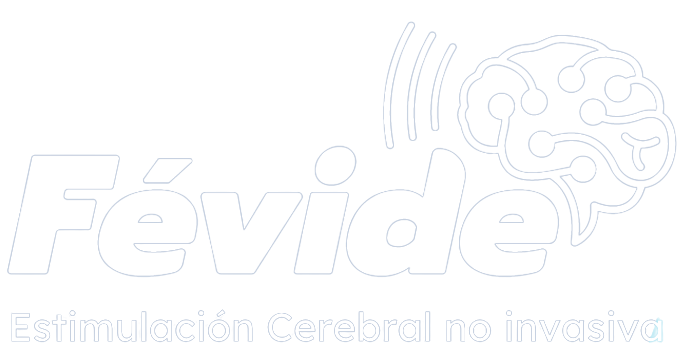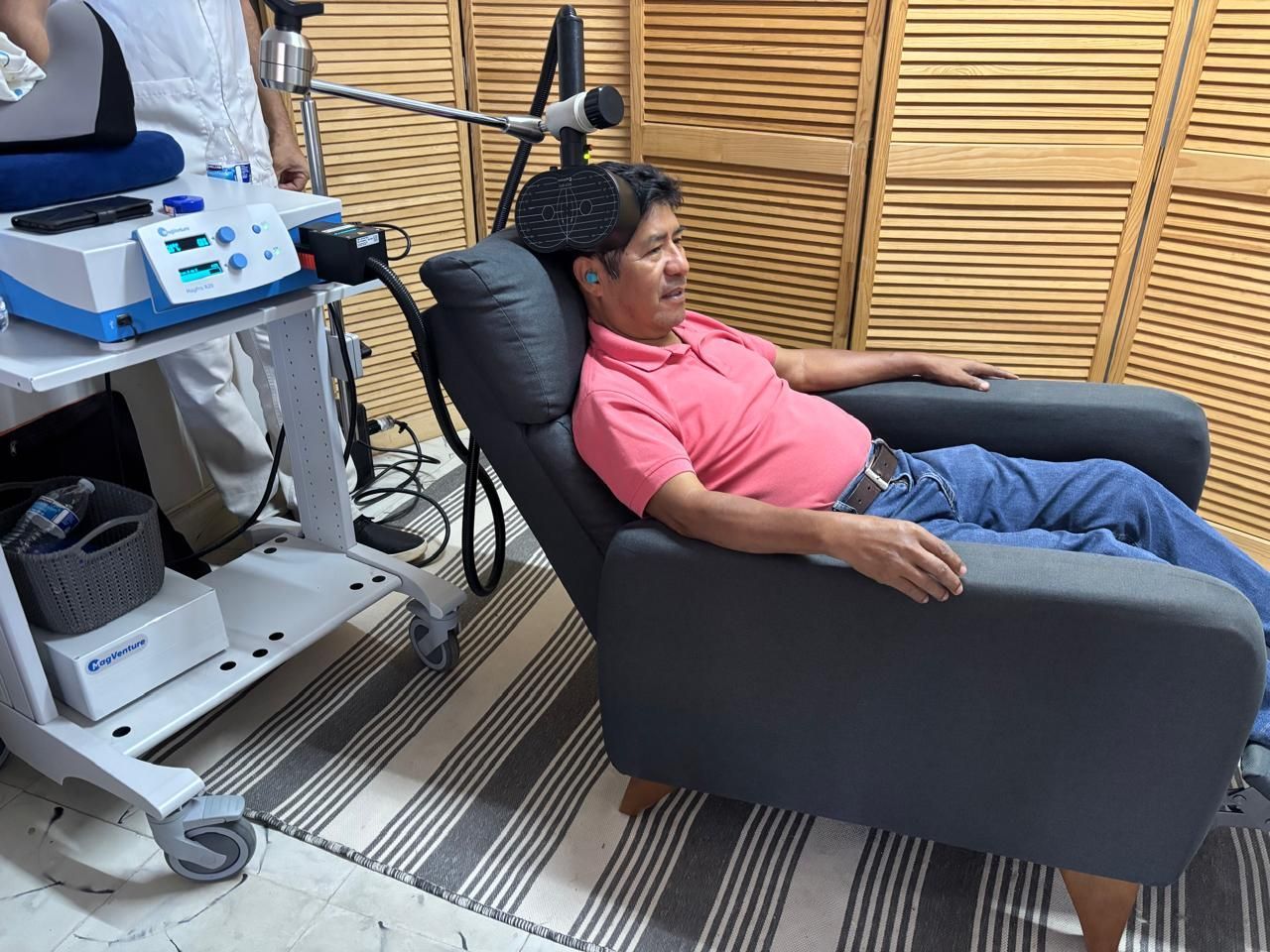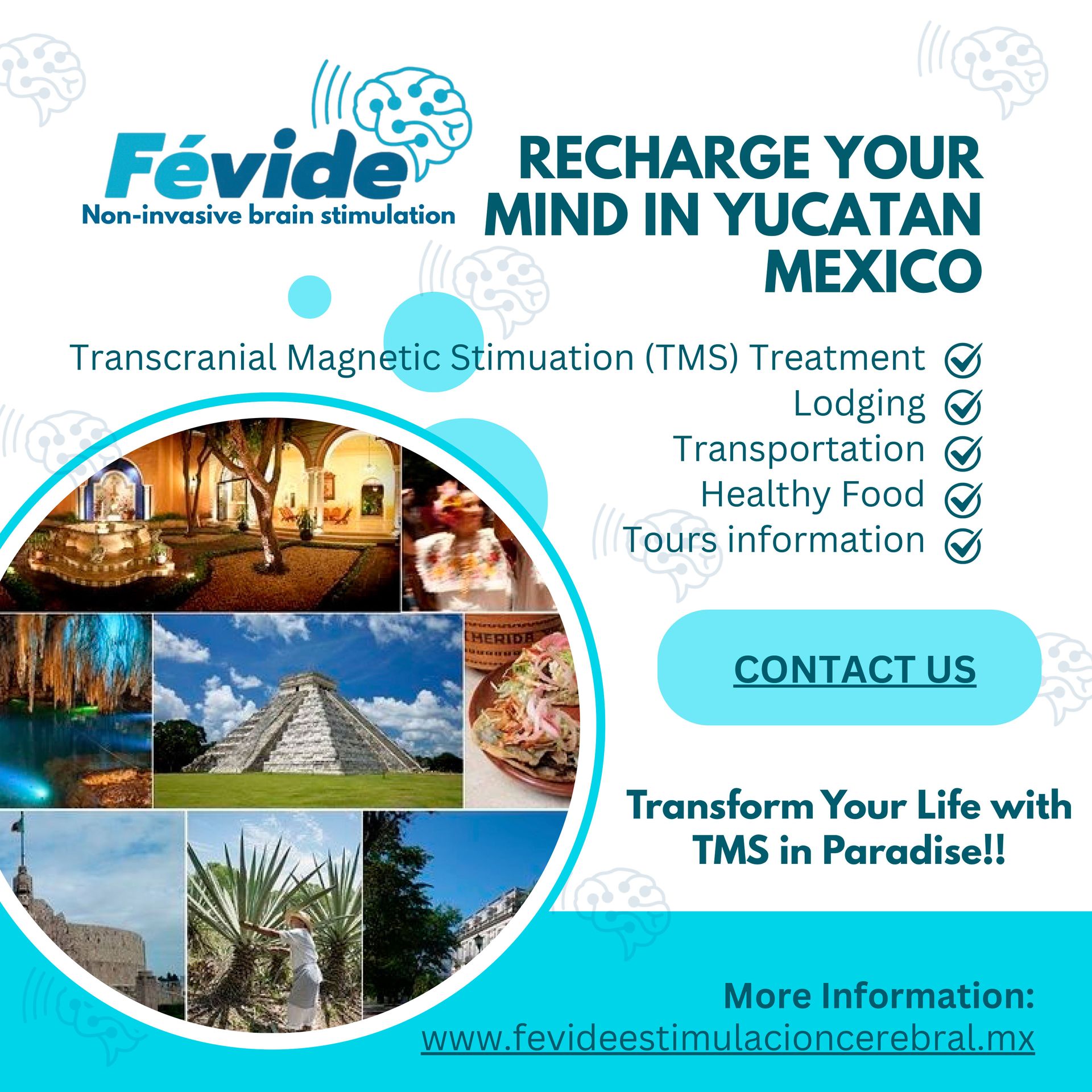Medical tourism
Experience the Best of Merida, Yucatan, Mexico: Explore Our Rich Culture, Delight in Our Local Flavors, and Enhance Your Mental Wellbeing with TMS Therapy!
Dr. Jorge Hevia Orozco
Rediscover Peace of Mind—Non-Invasive Relief When Nothing Else Worked
When traditional psychiatric treatments and medications fail, there’s still hope.
At our clinic, we specialize in cutting-edge non-invasive electromagnetic therapy, offering real results for patients suffering from conditions like depression, anxiety, schizophrenia, Parkinson’s, Alzheimer’s, insomnia, and more.
This outpatient treatment is safe, drug-free in some cases, and has become the last-resort solution that works—even as a standalone therapy.
Just like one of our recent patients, who traveled from Veracruz during Holy Week in search of relief from chronic tinnitus (ringing in the ears). After struggling for years without answers, he finally found calm—and a path forward.
Whether you’ve tried everything or want a drug-free alternative from the start, we’re here to help you heal, naturally.
Book your evaluation today and take the first step toward real relief.

What is Transcranial Magnetic Stimulation?
Transcranial Magnetic Stimulation (TMS) is a non-invasive technology that applies a pulsed magnetic field to penetrate the skull and generate an electric field in the brain. This produces an induced current that acts on the nervous system, causing a series of physiological and biochemical reactions that can improve and treat mental and neurological diseases.
Contraindications and Precautions
The International Federation of Clinical Neurophysiology (IFCN) has established safety guidelines for repetitive TMS (rTMS). The following contraindications and precautions should be considered:
Absolute Contraindications
Presence of metal hardware near the discharge coil: The presence of metal implants, such as cochlear implants or internal pulse generators, may cause malfunction or damage to these devices.
Relative Contraindications
1.
Electrodes or implants near the TMS coil:
A risk analysis should be performed to assess the possibility of overheating or damage to electrodes or implants
2.
Force or displacement of implants:
The magnetic field generated by TMS may attract or repel ferromagnetic or nonferromagnetic objects, which may cause force or displacement of implants in the head.
3.
Damage to electronic implants:
The electromagnetic pulses of TMS may damage electronic implants near the coil.
4.
Risk of seizures:
Although the risk is extremely low, factors such as a personal history of epilepsy, brain lesions, or medications that may lower the seizure threshold should be considered.
5.
Skull defects:
Skull defects may be a relative contraindication for TMS.
6.
Contraindications – Do Not Use If You
Have:
Pregnancy, severe or recent heart disease, children under 2 years old, intracranial stimulation, cardiac stents, hearing loss, epilepsy, elevated intracranial pressure
* These conditions may be relative contraindications for TMS.
TMS can be a safe and effective technology for the treatment of neurological and psychiatric diseases. However, it is essential to understand the contraindications and precautions to ensure the safety and efficacy of the treatment.
We will carefully evaluate your personal situation before administering TMS.






